Affiliate Disclosure: Some of the links in this post are affiliate links. As an Amazon Associate, we earn from qualifying purchases. Read more in our affiliate policy.
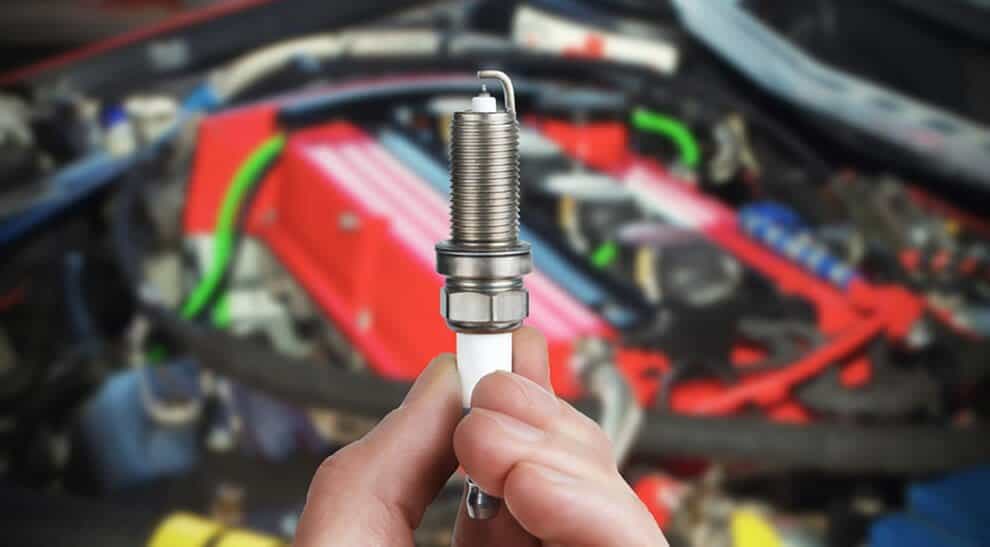
Best Spark Plugs Reviewed – Chasing the Performance and Gas Mileage
Is it possible to choose a single most important engine component to a car? Mmm, probably not. There are just too many things that are vital to its proper functioning.
However, if you did have to pick one single part as the most important, you certainly couldn’t be faulted for singling out the spark plugs – without them, your car ain’t going nowhere.
Thus, it’s incredibly important to pick only the best spark plugs when the inevitable time comes around to replacing the old ones. Even the best performance spark plugs will burn out and wear down over time, and this causes a decrease in engine performance, efficiency, and fuel economy – not to mention premature wear and tear on all of your other internal engine components.
Also, by the time the stock OEM plugs are ready to be replaced, your car will likely have upwards of 100,000 miles on it. The more the miles, the more important it is to make sure you give your car the best spark plugs possible in order to keep it running smoothly and efficiently.
Last time, we covered some of the best spark plug wires and now it’s time to help you choose the best spark plugs. In this guide, GarageChief crew picked out the best-rated and best-reviewed ones currently available on the market.
Best Spark Plugs – Our Top Picks Compared
| editors-choice | Best Product | Best Value | ||||
|---|---|---|---|---|---|---|
| item-title | Autolite APP104 Best Double Platinum Spark Plug | Bosch (4501) FGR8DQI Platinum IR Fusion Spark Plug | NGK 7090 BKR5EGP G-Power Spark Plug | Denso (4504) PK20TT Best Platinum TT Spark Plug | ACDelco 41-993 Professional Iridium Spark Plug | E3 Spark Plug E3.74 Automotive Spark Plug |
| Type Double Platinum Spark Plug | Type Single Platinum Spark Plug | Type Single Platinum Spark Plug | Type Single Platinum Spark Plug | Type Iridium Spark Plug | Type Copper Core Spark Plug |
|
| Life span 100,000 miles | Life span 100,000 miles | Life span 60,000 miles | Life span 60,000+ miles | Life span 80,000 miles | Life span 100,000 miles |
|
| • High nickel alloy side electrode • Full platinum tips • Necked-down center electrode • Full copper core center electrode | • Fused iridium and platinum center electrode • Four ground electrode design • Factory pre-set gap | • G-Power platinum alloy • 0.6mm laser welded fine platinum tip • Platinum alloy ground and center electrode • Trivalent metal plating | • Twin-tip (TT) technology • Purified alumina powder insulator • Superior resistance | • High quality replacement • Iridium high melting point and great strength | • DiamondFIRE electrode • Nickel Plated Terminal End • Projected Insulator Tip • Spark Gaps Tailored to Your Engine |
|
| td-btn-amz | Check Price at Amazon | Check Price at Amazon | Check Price at Amazon | Check Price at Amazon | Check Price at Amazon | Check Price at Amazon |
| editors-choice | Best Product | Best Value |
Spark Plug Reviews – Which Spark Plug is Best for my Car?
The main thing you’ll want to look for when shopping for the best spark plugs is construction material. In terms of performance and to achieve the best possible engine efficiency, horsepower, gas mileage, and “spark plug life span”, you’ll want either iridium or platinum core plugs. Traditional copper core spark plugs have a very wide electrode (2.5 mm), which is highly inefficient for today’s high temperature and high voltage firing conditions. Also, platinum and iridium are much harder materials than copper, and will last up to 60% longer before the electrode wire is burned away.
Every time a spark plug fires, tiny amounts of the electrode material is literally burned off, no matter the core material (copper melting point = 1,984 deg F; platinum = 3,222 deg F; iridium = 4,429 deg F). Thus, with platinum and iridium plugs, you not only get the longest possible lifespan, but also the most optimal and efficient transference of heat.
Autolite APP104 Double Platinum – Best Spark Plugs On The Market
The Autolite APP104 Double Platinum Spark Plugs are the overall best plugs currently on the market, in our opinion. They feature full platinum tips on both the center electrode wire and the nickel alloy side electrode. This allows for essentially zero “waste spark” – a condition which is common among other copper, single platinum, and even iridium plugs (read below for a detailed explanation about how double platinum spark plugs work).
Also, the dual platinum tips allow for virtually no electrode erosion – these plugs are rated to last for well over 100,000 miles. Very likely the last spark plug replacement you will ever need on your used vehicle.
Additionally, the necked-down center electrode allows for less voltage on startup (the wider the diameter of the center electrode, the more voltage is required for firing), as well as optimal firing efficiency, even at high-RPM interstate cruising speeds.
While the double platinum plugs are by far our favorite and the most efficient in terms of performance and longevity, the APP104 plugs also come in copper, single platinum, and iridium varieties (not all vehicles can accept a double platinum plug).
Denso (4504) PK20TT Best Platinum TT – Best Value Spark Plugs
For the money, you won’t find a better value spark plug than the PK20TT from Denso. A lot of times people will spend money on spark plugs depending on the number of cylinders they have in their car; if you’ve got a small 4 cylinder, you can maybe get away with spending 8 or 10 bucks on a single plug, and it won’t add up to a terrible amount.
However, if you’re running an 8 (or more) cylinder, for example, you can ring yourself up a pretty nice bill pretty quickly just buying investing in some decent quality spark plugs. That’s not the case with these ones, and is hence why they’ve easily take our spot for the Best Value spark plugs on the market.
The Twin-Tip (TT) design allows for faster flame propagation and ensures for a more complete combustion. With lesser-quality spark plugs, the inadequate “fire”, or spark, means that the air/fuel mixture won’t burn up 100%, which causes accelerated carbon buildup on your internal components and results in premature wear.
These are really solid platinum plugs that you can expect to get 60,000+ miles out of, and rely on consistent and efficient performance.
Bosch (4501) FGR8DQI Platinum IR Fusion Plugs – Best Spark Plugs For Horsepower
Bosch has been one of the most highly reputable brands in spark plug manufacturing for quite some time. They’re a frequent sponsor of high-profile international racing events, and are known to put out some of the best spark plugs for horsepower and performance, with these particular ones (the 4501) being the best of the bunch.
Don’t get us wrong, they cost a pretty penny, but they’re absolutely worth it if you’re looking to achieve the ABSOLUTE peak power and performance that your vehicle’s engine has to offer.
The enhanced performance and firing capability of these plugs come from their fused iridium center electrodes, which have a thin wire tip that’s up to 85% narrower than traditional copper core plugs. This allows for the most precision gap and the absolute greatest firing potential.
Not to mention, iridium is a harder material than both copper and platinum, so the electrode edge sees virtually zero erosion even under the most intense, high-temperature internal conditions (iridium has a melting point of 4,429 deg F compared to copper’s 1,984 deg F). This is absolutely critical for maintained long-term performance output (expect these plugs to last up to 100,000 miles even in performance vehicles).
NGK 7090 BKR5EGP G-Power – Best Performance Spark Plugs
The NGK 7090 is another great single platinum plug that’s an excellent like-for-like replacement for most modern day vehicles. You won’t want to use them on cars which call for double platinum plugs (again check out our guide below for an explanation on why), but these are the best performance spark plugs when the time comes to replace the OEM plugs.
The 0.6 mm laser welded fine platinum wire tip is one of the most precision-engineered on the market, and reduces the voltage necessary for firing. This allows for better fuel economy, lower emissions, and quicker starts, even in brutally cold conditions.
Also, the laser welding ensures the performance and firing efficiency over the entire life of the plug – not just for the first 30,000 miles or so. (These plugs are rated to last over 60,000 miles).
And lastly, the trivalent metal plating on the thread body all but eliminates seizing potential in the cylinder head, without having to use anti-seize compounds that hinder efficient heat dissipation.
ACDelco 41-993 Professional – Best Iridium Spark Plug
These are hands down the best value-priced iridium spark plugs currently available, as far as we’re aware of. They’re actually right about the same price as the average single platinum plug, and are rated to last at least 25% longer with more efficient firing.
The thin wire iridium electrode is 0.4 mm in diameter, which allows for the least amount of voltage necessary to both ignite on starting and fire at high RPM while driving – less strain on the alternator, spark plug wires, and on all the internal engine componentry.
Also, the thin wire electrodes are fantastic for easy cold starting, even in the most brutal of winter conditions. And like we mentioned before, since iridium is a harder material than both copper and platinum, these plugs will last at least 25% longer than others on the market. Expect them to give you peak performance for at least 80,000 miles.
E3 Spark Plug E3.74 – Great Long-Lasting Spark Plugs
For the price, these are the most long-lasting spark plugs we know of that you can get – they have a guaranteed 5-year/100,000 mile warranty (whichever comes first). Now granted, they’re not the best performance spark plugs or the best spark plugs for horsepower, but for the value, they’re a hard bargain to beat with the protected insulated tip that adds a great deal of life to the center electrode (which is a nickel plated, corrosion-resistant material on these plugs).
Also, the three-point (diamond) side electrode technology is unique (most other plugs just have a single side electrode) in that it allows for 360-degree firing. This, as E3 themselves puts it, allows for literally all of the fuel to be “put to work”.
Spark Plugs Buyer’s Guide
The Basics
You might think of spark plugs as the “fire” necessary to run your car (or truck, or SUV, or motorcycle, or whatever). Even though they’re small, spark plugs emit a strong spark (think of it like a little bolt of lightning) that ignites and combusts the pressurized air/fuel mixture inside your cylinders. But where does this electricity come from to keep the spark plugs “sparking”?
The source of all electricity in your vehicle originally comes from the battery 1. However, once the car is up and running, the electricity is then provided by the alternator; the battery is only really used to start the car. This is why if an alternator goes out during operation, the car will die and not run at all.
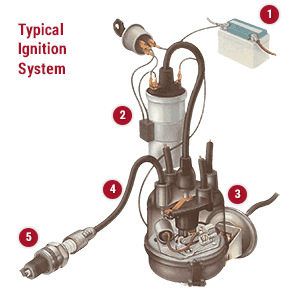
Anyway, a battery puts out about 12 volts of electricity. However, once that electricity reaches the spark plugs, the voltage can be upwards of 50,000 or even 100,000 volts! Where does this massive volt amplification come from?
When the electricity leaves the battery, it travels to something called an ignition coil 2 (or individual coil packs in newer vehicles). The coil(s) are responsible for amplifying the initial 12 volts from the battery into a much higher voltage required for the spark plugs to ‘spark’ (most plugs require anywhere from about 20,000 to 80,000 volts).
After the voltage is amplified in the coils, the electricity then travels to the distributor 3. The distributor is an all-important mechanism responsible for sending out electrical current to each individual spark plug in each cylinder. It is connected to the engine’s timing (via gears on the camshaft(s)), and must send out current to each cylinder in a specific and orderly sequence in order to keep the engine in time and running properly.
The electrical current from the distributor is then carried through the spark plug wires 4, which are connected to the spark plugs themselves 5. When the pistons reach the very top of the cylinder (top dead center), the distributor sends current to the spark plugs and causes them to “fire”. This ‘explodes’ the highly pressurized air/fuel mixture inside the combustion chamber, and provides the power (which is transferred to the wheels through the crankshaft) needed for your car to “go”.
What are the Differences Between Spark Plugs?
All spark plugs have a conductive core material that carries current from the plug wires to an electrode at the end of the spark plug. The electrode is where the actual spark, or electrical “arc” takes place.
Huge differences in engine performance and plug longevity/durability are determined by the construction material(s) of the spark plug, and it is important to know which type is best for your car. Generally speaking, there are four main types of spark plugs.
Copper Core Spark Plugs
Copper core spark plugs have a 2.5 mm nickel alloy electrode. This is actually the widest electrode out of all the four types of spark plugs (the smaller the diameter of the electrode, the less voltage is required to create a spark).
Most pre-1980s vehicles take copper core plugs because they have low voltage distributor-based ignition systems. Newer cars with high-energy DIS (distributorless) ignition systems or COP (coil-on-plug) ignition systems will wear copper plugs out very quickly because of high-voltage current it too much for the soft nickel alloy electrode.
TIP: That being said, however, there are a handful of new model vehicles that specifically call for copper plugs, and will not run efficiently on iridium or platinum. Double check to make sure that your vehicle is not copper core specific.
Platinum Spark Plugs
Platinum core spark plugs are a big step up in performance from copper plugs. They have a narrow platinum disc welded to the core electrode, which allows them to last much longer (upwards of 100,000 miles) than the nickel alloy discs on copper core plugs. Also, since they run hotter than copper core plugs, they burn more efficiently which prevents excessive wear and carbon buildup in the engine.
Most newer vehicles with DIS ignitions will take platinum spark plugs – if your car uses them, it’s important not to downgrade to copper plugs in an effort to save money. Copper will not run properly with the higher voltage direct coil ignitions, and will cause excessive internal wear on your engine. However, it is possible (and even advisable) to upgrade to iridium plugs when the time comes for plug replacement (Double platinum plugs are slightly different, which we’ll talk about below).
Double Platinum Spark Plugs
Double platinum spark plugs are not necessarily “twice as good” as regular platinum plugs. Rather, they’re built for waste spark ignition systems and designed to return the electrical pulse back to the cylinder’s ignition coil.
In non waste spark systems some of the electrical current is ‘wasted’ on the partner cylinder’s compression stroke, which is inefficient and undesirable. It’s kind of a difficult mechanism to understand/explain, but in short, you can’t use copper or single platinum plugs in vehicles that have waste spark ignitions. You can, however, use double platinum plugs in vehicles that come OEM with single platinum plugs. The owner’s manual will clarify whether or not your vehicle uses double platinum plugs.
Iridium Spark Plugs
Iridium spark plugs are the best upgrade you can make when replacing your vehicle’s OEM platinum plugs. Iridium is a harder material than platinum, and can withstand even more heat. They last up to 25% longer and burn more efficiently, which minimizes wear and tear on your engine components over the long term.
Also, the “thin wire” electrode tip on iridium plugs is extremely narrow (0.4 mm), which increases firing precision and efficiency. You can’t use iridium plugs in vehicles designed for copper or double platinum plugs, but they are a nice performance and fuel economy upgrade for vehicles that came stock with single platinum spark plugs. As is always the case, make sure you check your owner’s manual to see what type of plug your vehicle calls for.
Can Spark Plugs Increase Horsepower, Performance and Gas Mileage?
As you might imagine, the answer to this question can (and will) vary depending on who you talk to. If you were to ask a spark plug dealer, for example, or even an auto parts store clerk, you’ll get a sure-fire, “of course they can!”
However, a lot of tuners and gearheads out there will much more skeptical and less quick to jump to an answer.
The bottom line, though, is that yes, new spark plugs can increase horsepower, gas mileage, and overall engine performance — if only slightly.
You have to understand that spark plugs are literally the driving force behind an engine’s motion – both the reciprocating (up and down) motion of the pistons in the cylinders, and the rotational motion that’s transferred through the crankshaft out to the wheels. If you have old, worn-down, or fouled up spark plugs, they will not be able to produce maximum spark. In turn, this will result in a loss of downward force on the pistons after the air/fuel ignition, and ultimately a loss in power (i.e. horsepower) out to the vehicle’s wheels.
Spark plugs are one of the most crucial components to your engine’s performance — don’t neglect them.
Granted, unless you’ve got total failure in one (or more) spark plugs, the loss in power is likely to be negligible. This is why you hear plenty of folks arguing that spark plugs don’t make a whole lot of difference when it comes to gaining horsepower.
To keep things simple, just consider that new, properly-functioning plugs will always translate to maximum possible horsepower.
In terms of gas mileage, the same basic principle is also true: new plugs in top shape will always translate to the most optimal fuel economy that your car or truck is capable of. If you’ve got worn out or inefficiently functioning spark plugs, engine performance will be significantly reduced and gas mileage, along with other things, will certainly be affected.
Do Iridium Spark Plugs Make a Difference?
Like we just talked about, iridium spark plugs are a great upgrade for vehicles that have either copper core or platinum plugs. So yes, they absolutely make a difference.
The iridium electrode material is harder than both platinum and copper, so it will last up to 25% longer. Every time a spark plug “sparks”, or fires, tiny amounts of the electrode material are actually burned away. Over time, this loss of material causes the gap between the electrodes to widen to the point where the spark can no longer make the “jump”. This is when you start to get misfires, bad acceleration, and poor gas mileage.
Upgrading to iridium spark plugs gives you the best and most efficient firing performance for the longest period of time. Over the long run, this will save you loads of money on fuel and other expenses associated with general wear and tear.
How Long will Spark Plugs Last? How do I Know I Need to Change?
It’s well advised to change out your spark plugs before the recommended mileage.
Think of it this way: if you have a brand new car with zero miles on it and the service manual recommends to change the plugs at 100,000 miles, by 70,000 miles the plugs are already 70% burned away. This means that you’re already getting decreased performance and efficiency. While the plugs will keep firing up to (and likely beyond) the 100,000 mile mark, they won’t be doing so at peak efficiency, and you’ll pay in terms of performance and fuel economy.
And of course, worn-out spark plugs will often “tell you” that they need to be replaced either through a misfiring engine, sluggish acceleration, poor idling, or a combination of the three. If you’ve got a rough running car with bad acceleration and poor fuel economy, it’s very likely that all you need is a simple spark plug change.
How do I Change my Spark Plugs?
“How to change spark plugs” is probably one of the most-searched DIY phrases on the internet. Fortunately, the job is not an overly-complicated one. In fact, it’s one of the simplest jobs you can do on an automobile.
First, make sure that you NEVER change spark plugs on a hot engine. That is to say, don’t drive up to the auto parts store, get your new plugs, and immediately start tearing into it when you get home. In addition to the (very real) possibility of burning yourself on the engine block or exhaust manifold, changing plugs on a hot engine will not allow the new plugs to be tightened correctly; heat expands the engine threads, so the torque will be drastically limited if you try to install new plugs on a block that’s still hot. Wait at last a half an hour before removing the old ones.
Also, it’s good practice to disconnect the positive red battery terminal to eliminate the risk of electrical shock.
Once the engine is cool, the first thing you’ll want to do is clean the area around the spark plugs really well with a microfiber rag and either some engine degreaser or brake cleaner. When you get around to pulling the old plugs out, you’ll have gaping holes directly into your engine, so you don’t want dirt and debris falling in.
Once everything is nice and clean, you can start by removing the spark plug wires. Make sure you only work on one plug/wire at a time. This ensures that everything stays in the proper order and you keep the right wires from the distributor hooked up to the right plugs.
Use a pair of pliers to gently pull the boot from the top of the spark plug. Often times you’ll need a pair of extra long needle nose like these to reach down into the plug wells.
At this point it is also worth paying attention to the spark plug wires themselves as they can be sawn or damaged. It is worth replacing them with new ones.
Once you’ve got the wire off, you then will use a deep well spark plug socket and a ⅜” ratchet extension to pull the plug. Simply turn counter-clockwise (lefty-loosey) to unscrew the plug from the cylinder head. The rubber ring inside the socket holds onto the plug and makes sure it pulls out of the well.
With the old spark plug out, you now need to make sure the new plug is gapped properly before installing it. In most newer vehicles the plugs come pre-gapped and you won’t need to do anything, but you’ll want to double check your owner’s manual. It will either say “pre-gapped”, or it will tell you what the gap needs to be. If you do need to set the gap on the new plugs, you’ll need to use a spark plug gap tool like this one.
Once you’re sure the new plugs are gapped properly, you can set about installing them and reassembling the spark plug wires. Again, make sure you’re only working on one plug at a time. Also, only add anti-seize lubricant (this one will be perfect) if it says specifically to do so on the box. Most all plugs nowadays come pre-lubed with anti-seize compound, so if you add more it can drastically affect heat transference and decrease plug performance.
Place the new plugs into the cylinder head by hand, and use the same socket to tighten them down. Be EXTREMELY careful not to cross-thread them, as damage to the threads on the cylinder head can be extremely costly. It’s advisable to use a ⅜” torque wrench like this one when installing the new plugs so you can tighten them to the specifications in your owner’s manual (the table below can also help you choose the right force to apply), but if you do not have a torque wrench, make sure not to over-tighten them.
| item-title | Spark Plug Type | Thread Diameter | Cast Iron Cylinder Head lb-ft. | Aluminum Cylinder Head lb-ft. |
| Flat seat type (with gasket) | 18 ø mm | 25.3 ~ 32.5 | 25.3 ~ 32.5 | |
| 14 ø mm | 18.0 ~ 25.3 | 18.0 ~ 21.6 | ||
| 12 ø mm | 10.8 ~ 18.0 | 10.8 ~ 14.5 | ||
| 10 ø mm | 7.2 ~ 10.8 | 7.2~8.7 | ||
| 8 ø mm | - | 5.8 ~ 7.2 | ||
| Conical seat type (without gasket) | 18 ø mm | 14.5~21.6 | 14.5~21.6 |
|
| Conical seat type (without gasket) | 14 ø mm | 10.8 ~ 18.0 | 7.2 ~ 14.5 |
Over-tightening them can cause them to seize in the cylinder head down the road, which again can result in costly repairs. If you’re installing without a torque wrench (what we strongly advise against!), only tighten down until you get a firm resistance. You’ll feel when the washer comes into contact with the head, tighten down about ¾ of a turn from the point of contact so the washer is slightly compressed.
With the new plug installed, add a bit of dielectric grease to the inside boot of the spark plug wire, and reattach. Use the same pliers that were used to remove the wires, and gently push down on the boot until you hear/feel a firm click onto the head of the spark plug. It’s common and well-advised to change the spark plug wires whenever you change the spark plugs themselves. (Check out our article here on the best spark plug wires and how to change them).
Repeat this process for all the other plugs.
Best Spark Plug Brands
In our opinion, Autolite, Denso, Bosch, NGK, ACDelco, and E3 are currently manufacturing the best spark plugs on the market today. In terms of construction quality, materials, performance, reliability, cost, and efficiency, they’re hands down the cream of the crop. Simply go and grab one of them and you will be 100% satisfied.
How Much is a Spark Plug for a Car?
For a good quality iridium spark plug, you can expect to pay between about $8 and $12 per plug. You’ll see quite a few that are more expensive than this, but those will be for tuned up performance cars that really need the added construction quality and specialized materials. For “normal” daily driver vehicles, they’re totally unnecessary (and even non-compatible). The best platinum spark plugs will be anywhere between about $4 and $10 per plug.
Whatever plugs you do decide on though, make sure not to skimp on quality – especially in older vehicles with over 80,000 miles. To make that baby last as long and run efficiently as possible, you really do need to utilize the best spark plugs you possibly can.
It’s also important to point out that in our experience, parts stores like AutoZone and Advance Auto tend to sell lower-quality products at a higher cost. We’ve been ordering our new plugs off of Amazon for years, as they always seem to have the best quality spark plugs at by far the lowest prices.
Best Spark Plugs: Bottom Line / Conclusion
So, taking into consideration the key components to look for when shopping around for the best performance spark plugs, hopefully, you can now “objectively” see why the Autolite APP104 gets our hands-down selection for Best Product.
This is a really well-made double platinum plug that ensures for optimal firing efficiency and virtually zero wasted spark – guaranteed to provide your engine with the performance that’s needed to get the best results in terms of gas mileage, power, and overall efficiency, not to mention the least amount of internal wear and tear.
Last update on 2024-04-27 / Affiliate links / Images from Amazon Product Advertising API
Disclaimers
All product names, logos, and brands are property of their respective owners. All company, product and service names used in this website are for identification purposes only. Use of these names, logos, and brands does not imply endorsement.
It is our policy to make every effort to respect the copyrights of outside parties. If you believe that your copyright has been misused, please provide us with a message stating your position and we will endeavor to correct any misuse immediately.
Some of the links in this post are affiliate links. As an Amazon Associate, we earn from qualifying purchases. This means if you click on the link and purchase the item, we may receive an affiliate commission, at no extra cost to you. This helps us keep this website alive. Read more in our affiliate policy.
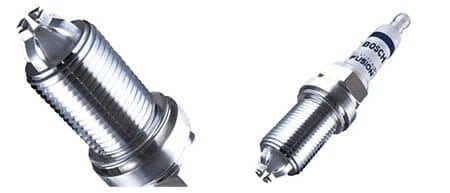
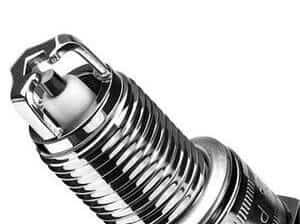
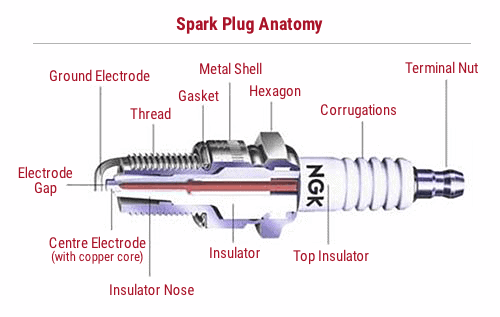
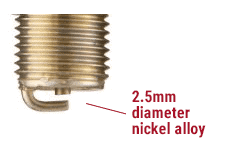
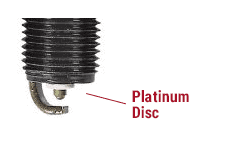
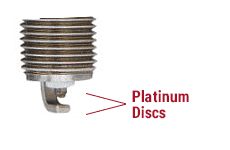
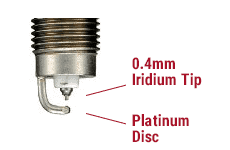

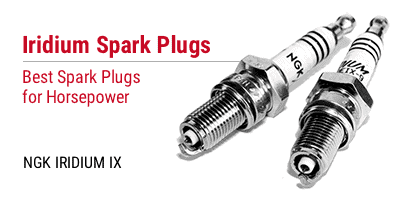









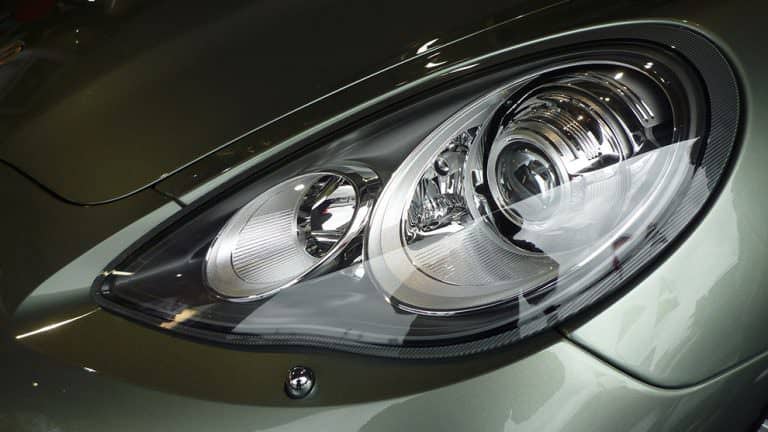
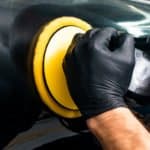

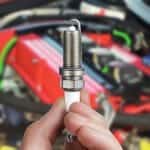
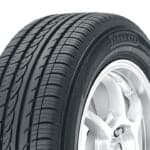
dont forget to change the O2 sensor at the same time with the plugs